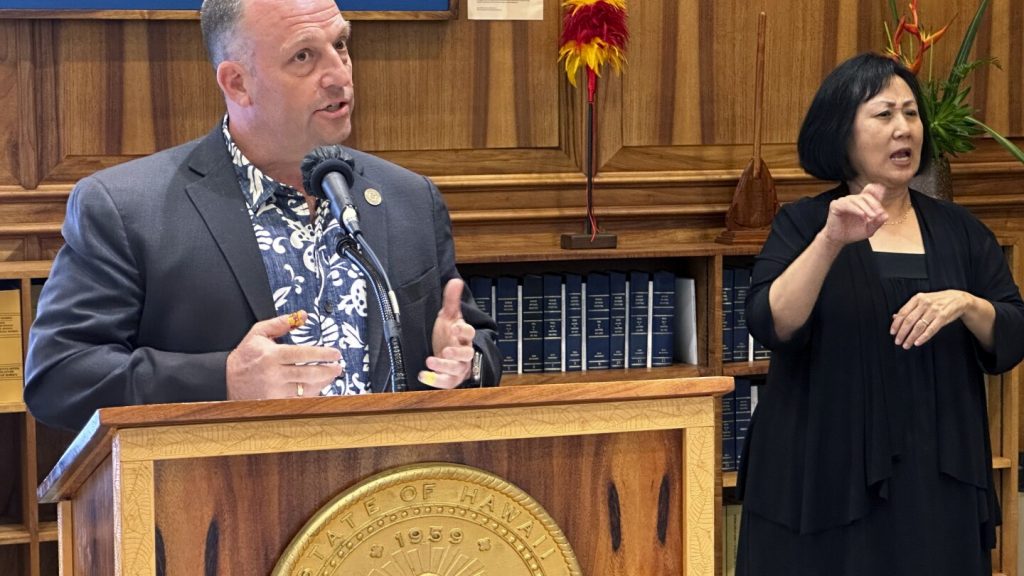The aftermath of the August blaze in Lahaina, Hawaii, has left around 3,000 people displaced and living in hotels for over seven months. Despite the challenging situation, Gov. Josh Green announced that up to 30 individuals are transitioning to longer-term housing every day. The state and federal government have secured enough long-term rental units and are constructing modular transitional housing units to accommodate all survivors currently residing in the 11 hotels. Green anticipates that all displaced residents will no longer need hotel accommodation by July 1. Initially, nearly 8,000 Lahaina residents sought refuge in 40 hotels immediately following the wildfire.
Maui is grappling with a severe housing shortage, particularly in West Maui, where much of the existing housing has been utilized for vacation rentals aimed at tourists. In December, Green threatened to use emergency orders to impose a moratorium on Maui short-term rentals if property owners did not make their units available to Lahaina residents. However, Green confirmed that such a drastic measure will not be necessary as the state has secured contracts for 1,300 units, with the number of households in hotels now below 1,300. One challenge faced is the availability of rentals not being in West Maui, leading some displaced residents to decline offers due to preferences of remaining close to their jobs and children’s schools.
A key issue highlighted by Green is the rejection of available housing options by some Lahaina residents who desire to stay near their existing community. Despite being offered various housing alternatives, individuals have turned down accommodations because of distance or family circumstances. Green emphasized the importance of eventually transitioning individuals out of hotels to free up resources for rebuilding efforts. He acknowledged the need for understanding but stressed the necessity for individuals to consider relocating to transitional housing once it becomes available. Jordan Ruidas, a member of the community group Lahaina Strong, expressed disappointment over Green’s decision not to impose a moratorium on vacation rentals, questioning the prioritization of comfort over fire survivors’ needs.
The wildfire in Lahaina ravaged over 3,900 properties, resulting in $4 to $6 billion in property damages. Of these properties, 561 were occupied by homeowners, and one-fourth of these lots have already been cleared of debris. Green reassured that homeowners will eventually receive permits to begin the rebuilding process in Lahaina, pending restoration of essential services such as water, sewer, and electricity. The government is focused on recovery efforts to facilitate the return of affected residents to their homes and communities. Despite the challenges faced by displaced individuals, the state and federal authorities are working diligently to ensure a smooth transition to long-term housing and support services for Lahaina survivors.
In response to criticism from Lahaina Strong regarding the lack of a moratorium on short-term rentals, Green has directed the attorney general to enforce laws against illegally operated vacation rentals. The community group hopes to see swift action taken to crack down on unlawful vacation rentals that are hindering recovery efforts in West Maui. Green reiterated his commitment to addressing the housing crisis and providing sustainable solutions for displaced individuals. The government aims to uphold its responsibility in supporting fire survivors and rebuilding destroyed communities, urging collective efforts from all stakeholders to overcome the challenges posed by the Lahaina wildfire disaster.


